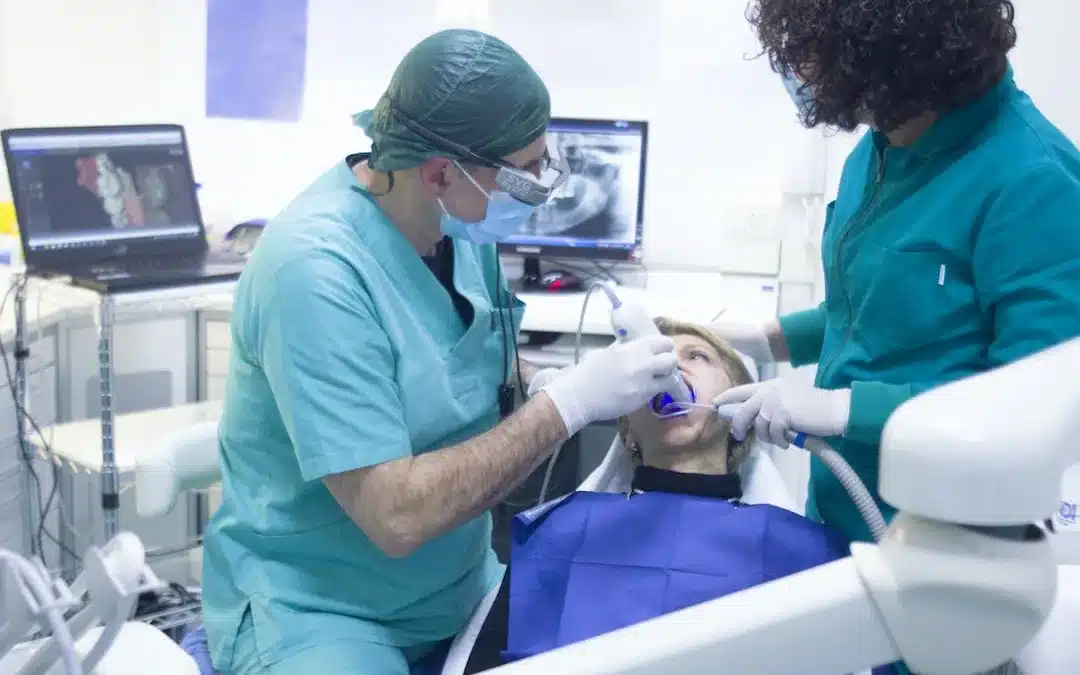Ow, my tooth! Imagine eating your favorite food without pain or worrying about toothaches. Sounds great, right? Dental implants can help make that dream a reality, improving your life in more ways than one.
Read on to learn about dental implants’ advantages and how the process works.
Types of Dental Implants
There are different types of dental implants to suit your individual needs. The dental implants that work best for you depend on your jawbone and how many teeth you’re missing.
Endosteal Implants
Endosteal implants are a popular kind of dental implant. They look like screws and are often made with titanium.
They’re placed into the jawbone, providing a sturdy foundation for artificial teeth. This type takes several procedures to complete.
Subperiosteal Implants
Subperiosteal implants are ideal for people with weak or shallow jawbones. They consist of a metal frame fitted onto or above the jawbone beneath the gum tissue.
As your gums get better, the framework becomes stuck to your jawbone. Then your dentist can add posts to put in new teeth.
Benefits of Dental Implants
Dental implants have many advantages for replacing missing teeth. They can help you for a long time.
Dental implant procedures will take little time to recover. They are designed to be easy for you, keeping your natural smile intact.
Improved Appearance
One of the main benefits of getting dental implants is an enhanced appearance. Dental implants look and feel like natural teeth. Say goodbye to the days of hiding your smile!
Better Speech
Ill-fitting dentures can cause speech problems. But dental implants are permanent. Your speech will remain clear and natural.
Increased Comfort
Unlike uncomfortable dentures, dental implants integrate with your jawbone. Implants are better for natural and comfortable chewing.
Easier Eating
You can eat your favorite foods with dental implants. They work like teeth and let you enjoy your meals without any worries.
Durability and Convenience
Dental implants are long-lasting and need minimal maintenance. No need for denture adhesives or nightly removal – your implants are here to stay!
Candidacy
Only some people are suitable candidates for dental implants. Factors like uncontrolled diabetes, gum disease, or autoimmune disorders may affect eligibility. A thorough evaluation by a dentist is essential.
Cost and Insurance Coverage
Dental implants require a person to have good oral and overall health. If you have specific health problems like diabetes or gum disease, getting dental implants might also not work. This is because your body may not be able to heal them right.
The dentist will check if you can have the procedure. They will look at your medical history, jawbone density, and how you care for your teeth.
Time Commitment
Getting dental implants takes a lot of work. It takes a few months to complete because you need time to heal and for osseointegration.
You may need to visit the dentist a few times and wear temporary teeth (like partial dentures) for a while. You’ll need patience and commitment for successful dental implants.
Pre-Procedure Requirements
Your dentist might suggest some things to do before your implant to make it safer and more likely to work. These include quitting smoking, practicing better oral hygiene, or addressing dental issues like gum disease.
Potential Complications
While dental implants have a high success rate, complications can still occur. Your dentist may tell you about some risks related to dental procedures.
These risks could include implant failure, infection, or nerve damage. It’s good to discuss these risks with your dentist to be aware.
Dental Implant Procedure
The dental implant process is customized to you. How long it takes to get better depends on your implant type. Your dentist can tell you more about how they do it.
Consultation and Planning
To get a dental implant, you first talk to the dentist about your teeth, jaw, and physical health. This will help them decide if you fit the procedure well. The dentist will discuss the implant and crown materials, cost, and timeline.
Tooth Extraction (If Necessary)
Some cases require tooth extraction. The site can heal for a few weeks before the implant procedure. A bone graft may be necessary to ensure there is enough bone support.
Bone Grafting (If Needed)
If the jawbone lacks adequate density, a bone graft may be necessary. To make an implant, we add a tiny bit of bone or unique material to the spot where the implant will go. This has to heal and join with the rest of the bone for a few months.
Implant Placement
After the tooth improves, the dentist will put the dental implant into your jawbone. The dentist cuts your gum and drills a hole to place the titanium implant inside. We leave the implant there to heal for several months.
Osseointegration
Dental implants attach to your jawbone to hold the fake tooth steady. This process is called osseointegration. This can take three to six months, during which you may wear a temporary crown or denture.
Abutment and Crown Placement
An abutment connects the implant and the fake tooth. The piece fits on the implant. The implant post is already in the jawbone and stays in place. It serves as a support for the artificial tooth and carries the force of chewing and biting.
Final Restoration
To finish the repair, we’ll put a unique crown on the implant using the abutment to keep it in place. This fake tooth looks like your natural teeth. It has the same shape, size, and color. You will have a nice and genuine smile.
Post-Procedure Care
Although dental implants have a high success rate, complications can still occur. Your dentist can help you avoid infection, nerve damage, sinus issues, and implant failure. Make sure to talk to them about how to prevent or manage them.
Maintenance of Dental Implants
Get regular check-ups and cleanings from a professional to keep your dental implants working well.
Also, practice good oral hygiene with regular brushing and flossing. Maintaining dental implants will help prevent complications and prolong their lifespan.
Replace Missing Teeth in Greensboro, NC
Dental implants can be an excellent solution for those looking to replace missing teeth. With proper care and maintenance of your implant, you can enjoy a beautiful, lasting smile!
Don’t wait any longer. Invest in your smile at Carolina Smiles in Greensboro, NC. Make an appointment today and start living a happier, healthier life!

